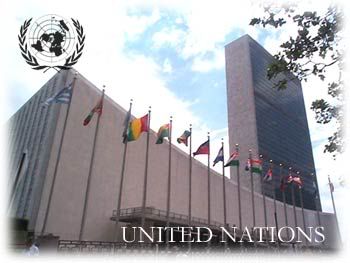
Proliferating The Last Best Hope
Two weeks from today, the United Nations will be celebrating its 60th birthday in existence. Recently, the United Nations has been having a bittersweet experience, and I don't agree with everything in how this long-living organization has been running, but I am indeed saddened and exhausted from all the antagonism toward the U.N, particularly with the Oil For Food scandal, as I believe in my heart the United Nations has done more for the good of humanity than any other major organization in history.
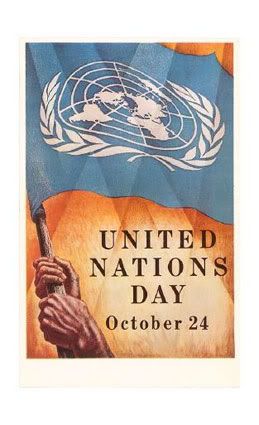
I not only believe it’s important to give the U.N credit for their accomplishments this past half a century, I believe it’s patriotic to be pro-U.N. Think back to 1999, for example. The 1999 regular budget of the UN amounted to $1.26 billion, of which the US share is about 25 percent or $300 million (the US share of the world economy is also about 25 percent). And it is that regular budget that funds UN activities, staff, and the basics, but does not cover peacekeeping operations or the cost of running specialized UN agencies. When you sum it all up, the entire UN program, including peacekeeping and specialized agencies, runs on about $10 billion a year, and two-thirds of the finances come from voluntary contributions from the member states.

We’ve got the United Nations Development Programme (UNDP), the World Food Programme (WFP), the office of the United Nations High Commissioner for Refugees (UNHCR), the International Labour Organisation (ILO), the United Nations Industrial Development Organisation (UNIDO), the International Maritime Organisation (IMO), the World Health Organisation (WHO), the UN's Children's FUND (UNICEF), the list goes on and on and on. And it can overwhelm anyone at first sight and lead to the interpretation that it’d take trillions of dollars to keep it all afloat.
But look at it this way. The US federal government collected and disburses then about 180 times what the U.N budget is. ($1.8 trillion) without even counting what the states themselves spend. Vermont and South Dakota had the two smallest budgets that year but still each had one of $2 billion. The entire UN budget is equal to that of the New York police department, the budget for UN worldwide human rights activities is smaller than that of the Zürich Opera House, and the cost of UN peacekeeping, below $1 billion in 1998, is less than two-tenth of one percent of world military spending (probably much lower than that now)

I’d certainly be impressed if I were you, anyone reading this should be. $10 billion really isn’t a lot in real terms, and I believe so much has been accomplished on a soft budget. Smallpox is virtually gone all over the world. Peaceful diplomatic solutions for co-existence, democracy, literacy programs, and sustainability just a few of the many benefits of this grand organization. The promotion of fair international trade. About half of the vaccines in the world are purchased by UNICEF.
The United Nations was founded right here in America, on October 24, 1945 in San Francisco. America itself is the mother to this enduring organization, and it needs to go back to its roots. Go back to the sense of that first meeting "The Establishment of a Commission to Deal with the Problems Raised by the Discovery of Atomic Energy" and use this same common sense in finding non-violent ways to stopping nuclear proliferation, something which I believe hasn't been taken as seriously as it should. Embrace the ethics of human rights in the fullest form, one of the cornerstones since the beginning for the UN. Its creation was largely influenced by World War II atrocities, after all, and I feel we need to once again embrace the "Universal Declration of Human Rights" ideals in assuring these tragedies don't repeat themselves. All at once, something must be done as well about the genocide in Sudan as well, etc as that also violates human rights.

The United States has long been a mother to this organization, nurturing it and letting it grow to fulfill the needs of many. Indeed anyone can admit, like any organization, it could have done more at times, we could disagree or question their motives sometimes, and sometimes just couldn’t mediate a conflict. We’re human after all, and it is just up to us to accept he imperfections sometimes and just get up and keep the community alive to hope for a strong second wind. And I believe the U.N does just that round the clock, in ensuring help is on the way.
I don’t agree with the U.N on everything, and wish they could be doing more in resolving the Israel-Palestine conflict, Kashmir and Sudan. But I don’t believe I should be expected to agree with any organization on anything. You just have to look at all the good aside from their struggles. Indonesia became an independent nation largely due to their diplomacy. They stabilized the Dominican Republic in the mid-60’s. Cyprus has been peaceful since they got involved in 1974. Namibia became independent under their help. And East Timor finally achieved their independence about three years ago after decades of carnage and strife, thanks to the calling of internatonial pressure called upon by the U.N.

They formed the United Nations Decade for Women in 1975 in Mexico to see to it women are recognized and paid for all the unwaged work they do in every level of the government and at home, and through extensive lobbying in supporting their rights to child benefits, childcare, pensions, etc. the governments decided to measure and value unwaged work for them.
On November 20, 1989, the United Nations gathered in forming the "Convention on the Rights of the Child" in setting goals and standards for improving the health and education of children in underdeveloped nations worldwide, which was signed by 109 countries and attended by more than 70 world leaders. One major finding during the convention was that 14 million children under the age of five die each year from malnutrition or a variety of diseases, most of them preventable. They planned to reduce child mortality by a third and to reduce malnutrition by as much as half. Sixty countries succeeded in reducing child mortality by one-third. Though they didn't reduce malnutrition by one-third, they still made very significant progress by reducing malnutrition globally for children under five from 177 million in 1990 to 150 million in 2000, where they reported malnutrition levels falling from 23 to 16 percent in East Asia and the Pacific. Access to safe drinking water improved from 77 to 82 percent in that same time-frame. They also had goals to reduce the gender gap in schools worldwide. They split it in half, with huge progress made in South Asia. They said they would work to eradicate polio and guinea-worm infection once and for all. In 1988, polio was endemic in 125 countries, now, it's only endemic in 10 countries, while guinea-worm infections and other diseases have seemingly vanished from many regions of the world.
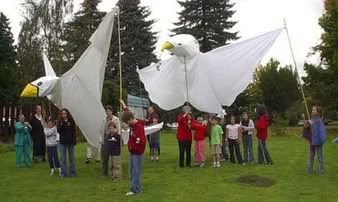
The United Nations has played a significant role in improving standards of living all throughout the world. They deserve our thanks, so I tip my hat to them for a job well done. And I do insist those critical of the U.N on a unilateral level to take the time to look at the big picture and recognize all the many bridges that have formed between communities worldwide, which all find dependence and trust in this great organization. And I believe that’s an outstanding form of patriotism in not just loving your country, but loving the world community.
It was our President John F. Kennedy who said in 1961, "The United Nations, our last best hope in an age where the instruments of war have far outpaced the instruments of peace..."
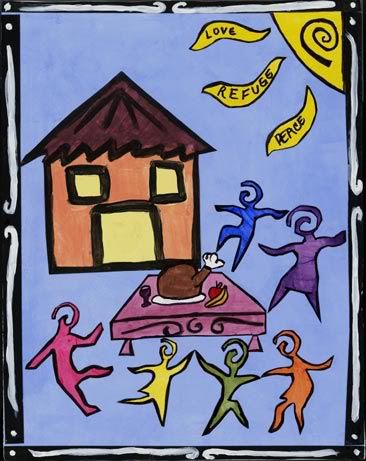
And indeed I feel the instruments of war continue to be proliferated across the globe with further isolation, prejudice and irresponsibility. I for one believe the instruments of war and peace are not alike. Only unconditional love for not just your country, but the world, can proliferate the instruments of peace universally in the end. I just find something’s incredibly wrong when our military and defense budget is growing by billions while Medicaid and other domestic programs are losing billions. The basic qualities of life are being defunded, and it is time we have that fact come to everyone’s attention before more negligence arises.
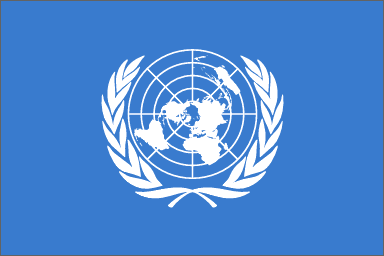
In closing statements, I’d like to share this dream I believe in which is read from Page 58, The Miracle, Joy and Art of Living: My Testament to Life, Volume 1:
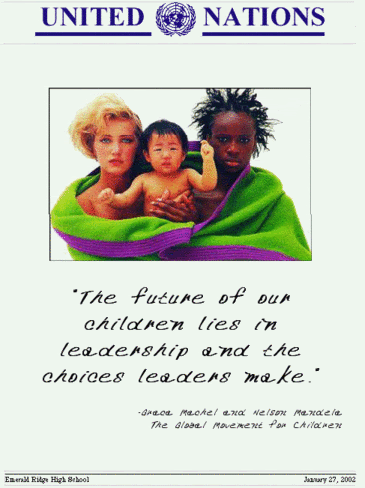
"I dream that all governments will join their minds and hearts
to manage this beautiful Earth and its precious humanity
in peace, justice and happiness,
That all religions will join
in a global spirituality,
That all people will become
a caring family,
That all scientists will join
in a united, ethical science,
That all corporations will unite
in a global cooperative
to preserve nature and all humanity.
I believe that once and for ever,
we will eliminate all wars,
violence and armaments
from this miraculous planet.
I dream that the incredible and
growing distance between rich and poor,
between and inside nations
will be eliminated as a blemish
to the miracle of life.
I dream that we will stop the destruction
of our miraculous, so richly endowed planetary home.
I dream that we will eliminate all lies, corruption and
immoral advertisements
for purely monetary purposes.
I dream that we will all live
simple, frugal lives in order
not to waste unduly the precious
resources of our planet.
I dream that each decade and centennial
will be celebrated as a great
world wide thanksgiving for our successes.
I dream that we will succeed in making our planet
the ultimate success of God,
of the mysterious forces of the
universe of which each of us
is a miraculous, cosmic unit.
I dream that the United Nations will
declare a yearly World Thanksgiving Day
Dear brothers and sisters,
dear children, youth, adults and elderly,
dear spirits of all the departed
let us join forces in fulfilling
God's loving destiny intended
for all of humanity."
Love,
Noah Eaton
(Mistletoe Angel)
(Emmanuel Endorphin)



























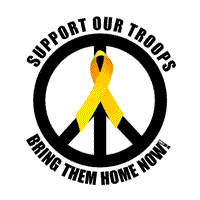














0 Comments:
Post a Comment
<< Home